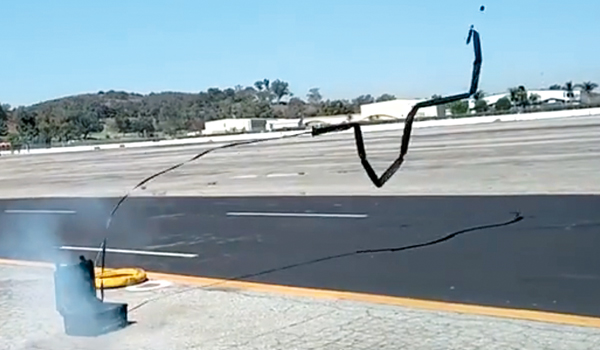Forces must adapt to ‘seismic shifts’ in crime
Society is changing fast. According to Rose Lasko-Skinner, a researcher at the independent think-tank Reform, the rate of technological development means people are “preparing for unknown unknowns”.
“The economy is undergoing a fourth industrial revolution driven by digitisation and new technologies such as artificial intelligence (AI), augmented and virtual reality and the Internet of Things (IoT). The police and other public services will need to be able to adapt to seismic shifts these changes might bring society,” she said.
Ms Lasko-Skinner says technology has changed and will continue to change the landscape of crime radically.
“Online there is a new front line with crimes such as online fraud, online abuse and internet-enabled child abuse on the rise,” she said in her latest Reformer blog.
“In 2016 the Office for National Statistics found the inclusion of cybercrime doubled the UK crime rate. The IoT also poses new threats, such as driverless cars and traffic lights being vulnerable to hackers.”
Recent research by Reform has shown how technology and better uses of data can be deployed on the front line to improve efficiency and join up blue light services. It has also looked at the way the workforce can be reformed to be more adaptive to the changing demands of the digital age.
“The near 200,000 officers and staff the police employ remain its largest asset and must be ready for these changes,” said Ms Lasko-Skinner. “They should do so not only to cater to changing demands, but also to be able to adopt new digital tools capable of improving policing.”
However, some technologies raise ethical questions in need of answers, she said: “For instance, AI could be used to ascertain whether a suspect should be kept in custody so ensuring bias does not play a part in automated decision-making is crucial.”
Ms Lasko-Skinner says ascertaining how much investment is needed for technology and smarter working will form part of the discussion in the Treasury’s Spending Review next year.
In 2017, Reform argued a new digital capital grant worth £450 million a year would be needed if the police were to see the benefits of contemporary technology, with funding coming from savings from Whitehall’s accelerated automation agenda, she said.
“As government leaders prepare for the 2019 Spending Review, understanding the future demands of the police force and how it can be equipped to meet them is key,” added Ms Lasko-Skinner.
“The policing mandate has changed little since Robert Peel’s Principles of Law Enforcement in 1829: ‘The basic mission for which police exist is to prevent crime and disorder.’
“What has changed, and will always be changing, is the social, economic and political landscape of society and how crime is done within it.”
David Darch, head of client service, policing, at BT, says this transformative effect that technology is having on policing means demands on digital evidence – from CCTV footage to phone records – are mounting.
“The public now expects easy digital contact with the police. These shifts require profound changes in the forces if they are to adequately face challenges now and in the future,” he said.
BT has been working with Essex Police to support the force’s drive to provide better services for its public. A recent ‘Hothouse’ event focused on delivering successful outcomes for three core challenges – child safeguarding, demand and Big Data.
“Communication is key,” stressed Mr Darch.
In his latest Reformer blog he explained: “The Policing Vision 2025 sets out a new vision for UK policing, which is more than making savings or incremental reforms. The ambition is to use digital technology to better service the public, making transformative changes across the entire service.
“There is a long way to go, but from our experience digital transformation is not blue sky thinking, it is happening on the ground in police forces.”




